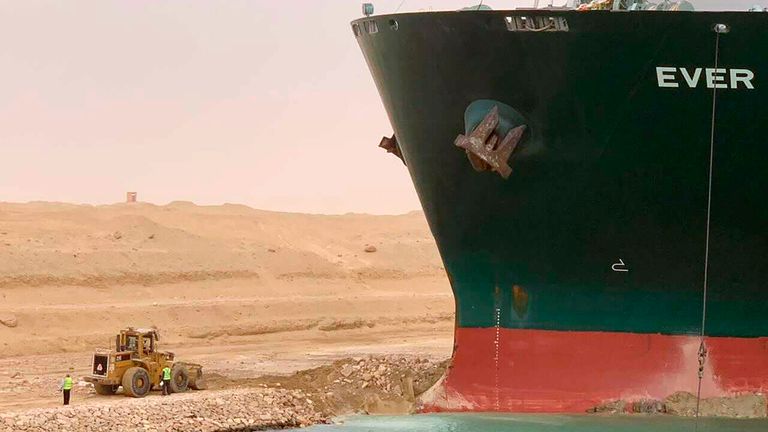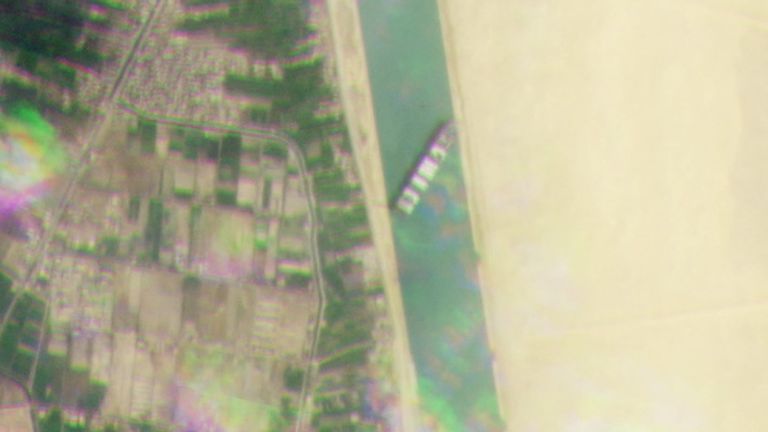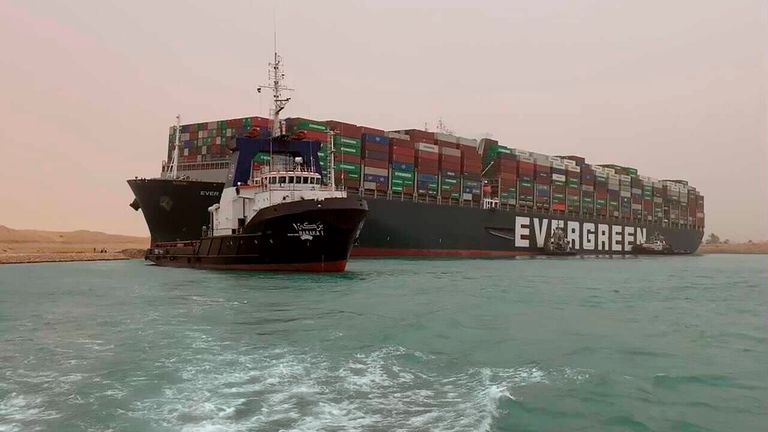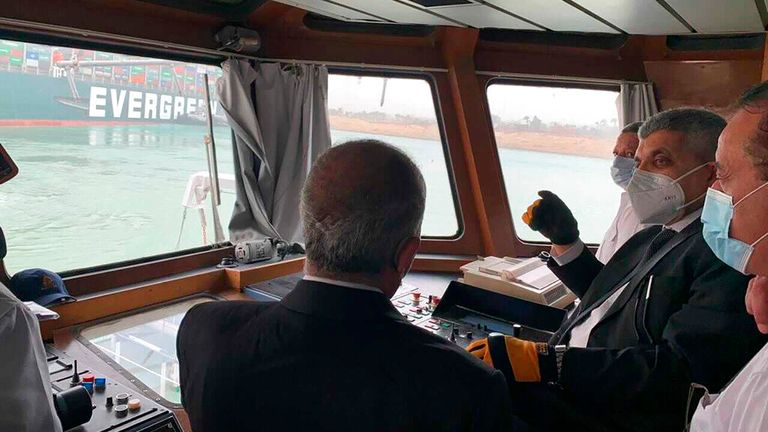Efforts have resumed to free the container ship blocking the Suez Canal, as fears it could take “weeks” force trapped boats to consider turning around.
Eight tug boats are currently working to drag the 400m (1,312ft) Ever Given to deeper water after it ran aground and blocked one of the world’s busiest shipping lanes on Tuesday morning.
Dredgers are also trying to clear mud and sand from underneath it in the hope it will eventually dislodge.
At least 150 vessels, including other container ships carrying oil, gas and grains, are backed up either side of the blockage in Egypt, resulting in one of the worst marine jams the world has seen in decades.
The company trying to free the ship has said it might take “weeks” to move the Ever Given, which may mean the other boats are forced to reroute.
“We can’t exclude it might take weeks, depending on the situation,” chief executive of Dutch firm Boskalis, Peter Berdowski, told the Dutch TV programme Nieuwsuur.
“It’s like an enormous beached whale,” he added.
Experts say that if traffic does not start to move in the next two days, ships will have to be diverted around the southern tip of Africa – adding a week to their journey times.
Mr Berdowski said officials are considering removing containers, oil and water from the Ever Given to make it easier to move.
But marine services firm GAC told its affected clients that wind conditions and the sheer size of the vessel are “hindering operations”.
The Ever Given was built in 2018 and at a quarter of a mile long and 193ft wide is among the largest cargo ships in the world.
It weighs 224,000 tonnes and can carry 20,000 containers at a time.
The Panama-registered ship had left China and was heading towards Rotterdam in the Netherlands when it became stuck.
Firm Evergreen Marine said the shipowner told them it “was suspected of being hit by a sudden strong wind, causing the hull to deviate from the waterway and accidentally hit the bottom and run aground”.
The Suez Canal Authority said in a statement it had lost “the ability to steer amid high winds and a dust storm”.
According to marine agent GAC, it suffered a blackout when it was travelling northwards in a convoy.
This week is not the first time it has been involved in a crash, however.
In 2019 the ship ran into a small ferry moored on the Elbe River in the German port of Hamburg in high winds, severely damaging the ferry.
The current blockage is having a dramatic knock-on effect to world trade and oil prices.
Around 30% of global container shipping volumes pass through the Suez Canal each day.
Opened in 1869, the waterway connects the Mediterranean to the Red Sea, and is the quickest maritime link between Asia and Europe.




